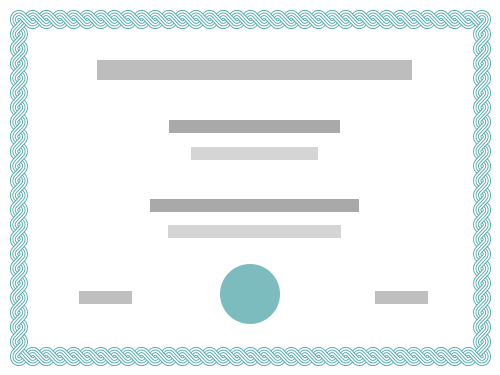Youth at the Center: Effective and Equitable Support at Adolescent Healthcare Clinics Across Washington State
Course
About this Course
This activity was originally released on June 29, 2022 and is available for continuing education credit until May 19, 2027. The course was updated in May 2024.
This course is comprised of 8 micro-modules divided into three sections: Trauma Informed, Healing-Centered Care, What Are Youth Friendly Services, and Sexual Healthcare and Education. The modules cover a range of topics directly related to trauma informed (healing-centered) care, adolescent friendly care, gender and sexuality affirming care. Each module will include clear learning objectives, interactive content, concrete strategies for implementation, evaluation, and additional resources for program support and continued education. The course is meant to support WA DOH’s goal of expanding and sustaining SBHCs across the state in a way that promotes equity, access and inclusion.
Who Should Take This Course
This course is intended for staff of adolescent healthcare clinics across Washington state.
To Enroll
Select the radio button under the continuing education type that you need, then select the Enroll button above it.
If you need to change your selection, unenroll from one course and enroll in the correct one.
Objectives
After completing this eLearning course, you will be able to:
Trauma Informed, Healing-Centered Care
- Describe the different types of trauma and common traumatic experiences
- Describe the neurophysiology of trauma citing specific impacts to the developing brain
- Screen and identify students who have experienced trauma and are exhibiting trauma responses
- Identify key principles and strategies of a trauma-informed approach
What Are Youth Friendly Services?
- Define and describe youth friendly services and accompanying strategies
- Develop and deliver adolescent health services that are equitable, accessible, appealing, and effective
- Implement change to create more youth friendly services at the provider and institutional levels
Sexual Healthcare and Education
- Describe sexual healthcare and education best practices
- Identify steps to prepare to address adolescent sexual healthcare
- Effectively answer sensitive questions posed by students related to their sexual and reproductive healthcare
Continuing Education
Continuing Nursing Education (CNE)
Cardea Services is accredited as a provider of nursing continuing professional development by the American Nurses Credentialing Center's Commission on Accreditation.
Upon successful completion of this activity 1.5 contact hours will be awarded.
Continuing Medical Education (CME)
This activity has been planned and implemented in accordance with the accreditation requirements and policies of the California Medical Association (CMA) through the joint providership of Cardea and Washington State Department of Health. Cardea is accredited by the CMA to provide continuing medical education for physicians.
Cardea designates this enduring material for a maximum of 1.5 AMA PRA Category 1 Credit(s)TM. Physicians should claim credit commensurate with the extent of their participation in the activity.
Successful completion of this continuing education activity includes the following
- Attending the entire CE activity
- Completing the online evaluation
- Submitting an online CE Request.
Registration & Fees
The eLearning course is free of charge.
Disclosures
There are no relevant financial relationships with ineligible companies for those involved with the ability to control the content of this activity.
(2).png?lmsauth=bd796a94e7ceab3c4d5b41a4dbbf741724488599)
Here is the course outline:
IntroductionCourse overview and PDF versions of the micro-modules. |
Trauma Informed, Healing-Centered CareThis section focuses on understanding trauma and its implications. It will also explore trauma informed tools and strategies and how to identify secondary trauma and practice self-care. |
What Are Youth Friendly Services?This section defines youth friendly services and explores how to provide them. It also digs into how to assess for bias, create safer spaces for all youth, and the rights of adolescents in Washington. |
Sexual Healthcare and EducationThis section identifies some best practices for providing sexual healthcare and education. It also explains how one might effectively answer sensitive questions posed by students related to their sexual and reproductive healthcare. |
Evaluation and CertificateComplete a brief evaluation. |
Completion
The following certificates are awarded when the course is completed:
 |
CME for Non-MD/DO Jointly Provided: Enduring Material |
 |
CME for MD/DO Jointly Provided: Enduring Material |
 |
MNA_CNE Independent Study |
 |
Certificate of Completion |




.png?lmsauth=5ec29864a644c9f8cc34d8b4d240dcd4c9cbb8e6)